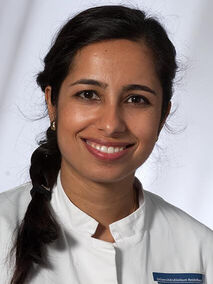Innate Immunity in Gastroenterology
General
Our laboratory is dedicated to understanding the role of innate and adaptive immune cells in modulating inflammatory processes in the context of human gastrointestinal disease. Inflammatory conditions, including inflammatory bowel disease and chronic liver disease, are characterized by an accumulation of blood-derived immune cells, including infiltrative monocytes. We focus on investigating the complex interactions between infiltrative monocytes and surrounding immune- and non-immune cells in driving inflammatory and fibrotic responses in the gut and in the liver. We aim to elucidate the molecular mechanisms that link the crosstalk between the different immune populations and to identify key pathways as targets for future therapeutic intervention. To this end, we use a variety of basic laboratory techniques, including molecular biology, protein biochemistry and cell culture, as well as advanced experimental methods, such as immunophenotyping by flow cytometry and next-generation sequencing, and in vivo animal mouse models.
We work closely with collaborators at the University Hospital Heidelberg and Harvard Medical School.
Open Positions
If you are interested in joining our lab, do not hesitate to contact us for further information. We recruit physician-scientists, PhD students and MD students. MD students will be trained in all necessary laboratory techniques, data analysis and presentation. They have the opportunity to present their work at conferences and are supported in applying for scholarships.
Staff
Funding
Collaborators
Prof. Patrick Michl, Universitätsklinikum Heidelberg
Prof. Uta Merle, Universitätsklinikum Heidelberg
Prof. Annika Gauss, Universitätsklinikum Heidelberg
Prof. Florian Leuschner, Universitätsklinikum Heidelberg
Prof. Zhenghui Gordon Jiang, Harvard Medical School
Prof. Simon C. Robson, Harvard Medical School
Prof. Maria Serena Longhi, Harvard Medical School







